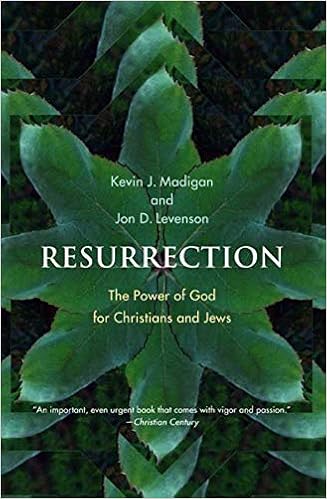In this very readable summary of the history of the concept of resurrection in Jewish history--and eventually in that very early Christian history--Madigan and Levenson do much to defend the Jewish roots of the idea. Ehrman's Heaven and Hell makes much use of the idea that early Jewish faith that early Jewish thinkers thought of resurrection mostly on a national restoration level rather than on that of a personal level. That idea is present in this book as well, but Madigan and Levenson do much to show how this concept was still tied in to later more personal ideas and how the rabbis were able to easily interpret passages from the Torah in such a way.
The gist of the argument is that eternal life--like one's identity--in the ancient Jewish belief system was tied to one's genetic descendents, one's family. One lived on through them--and through one's name (through one's descendents). Eventually, once there was a nation of Israel, this was extended to that nation--and the idea of national restoration. This is the emphasis of resurrection passages in scriptures like those of Ezekiel 37.
That said, even with emphasizing nation and family, there's something of a hint of what would later be made explicit in Daniel and in various works written during the second temple era. The promises of an enduring name offered to families are offered also to people like eunuchs, who obviously have no hope that their name won't be expunged. Likewise, ideas of God being a giver of life began to be extended to a giver of eternal life--if he could create life, why could he not restore it? Tales of restoration of physical life became types for restoration of human life in general.
This Jewish belief was passed along to Christians, who took it up in their cause with regard to Jesus and eventually all Christians. What changed, however, in the years following was Judaism's interaction with Greek philosophy (and though not covered in the book, Christianity's as well). Eternal life was not a given in ideas about resurrection; the Greeks, however, believed in an immortal soul apart from the body. Eventually, this belief, in a soul apart from the body rather than with the body, would work its way into Judaism, and then the idea that that soul was eternal. As such, old ideas about resurrection would begin to fall by the wayside in medieval times, and current systems of belief among Jewish religious authorities often leave the belief regarding the ultimate reward of believers to believers themselves.






